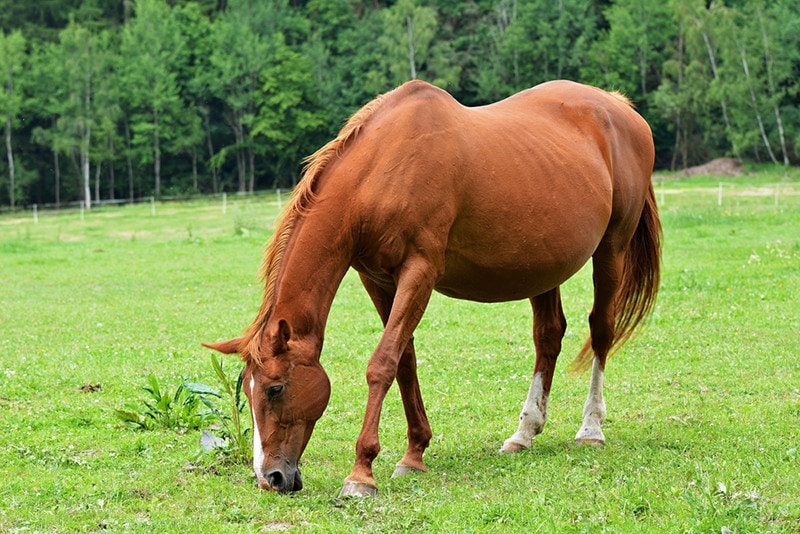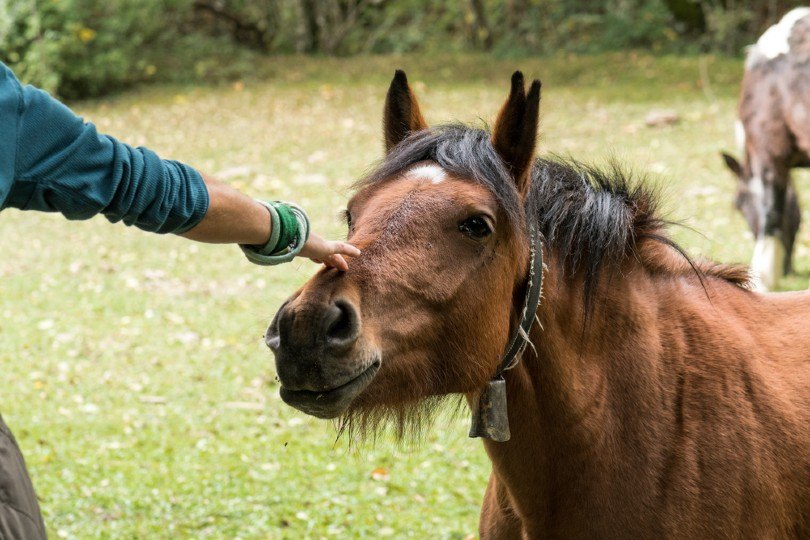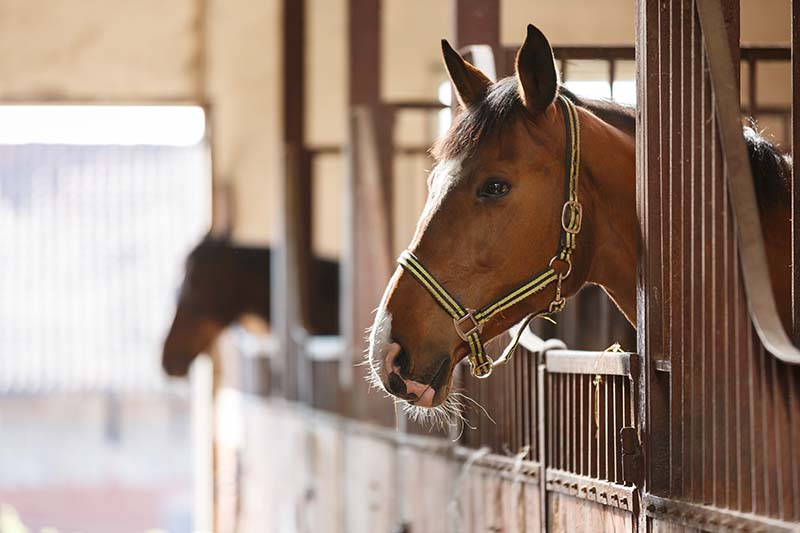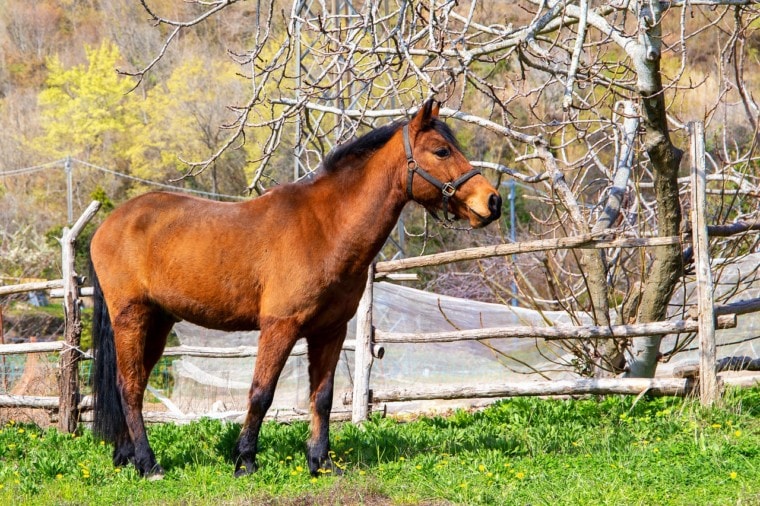
A great deal of work goes into caring for horses. These giant creatures eat large amounts of food, drink massive volumes of water, and need an abundance of space to exercise. They also need stables where they can sleep and pastures where they can graze.
Of course, you’ll have to find a way to keep them inside the pasture so they don’t just run free and disappear off your property. This leads to the necessity of quality fencing. After all, a 1,500-pound beast of a horse can accidentally stumble through sub-par fencing, so you need to choose something sturdy.
That said, certain types of fencing are definite no-nos when it comes to your horses, as they’re unsafe and potentially harmful. To simplify matters, we put together these reviews of the best types of horse fencing. We also discuss the types of fencing that you should never use with horses, so you know what to avoid.
The 6 Best Types of Horse Fencing
1. Wood Fencing
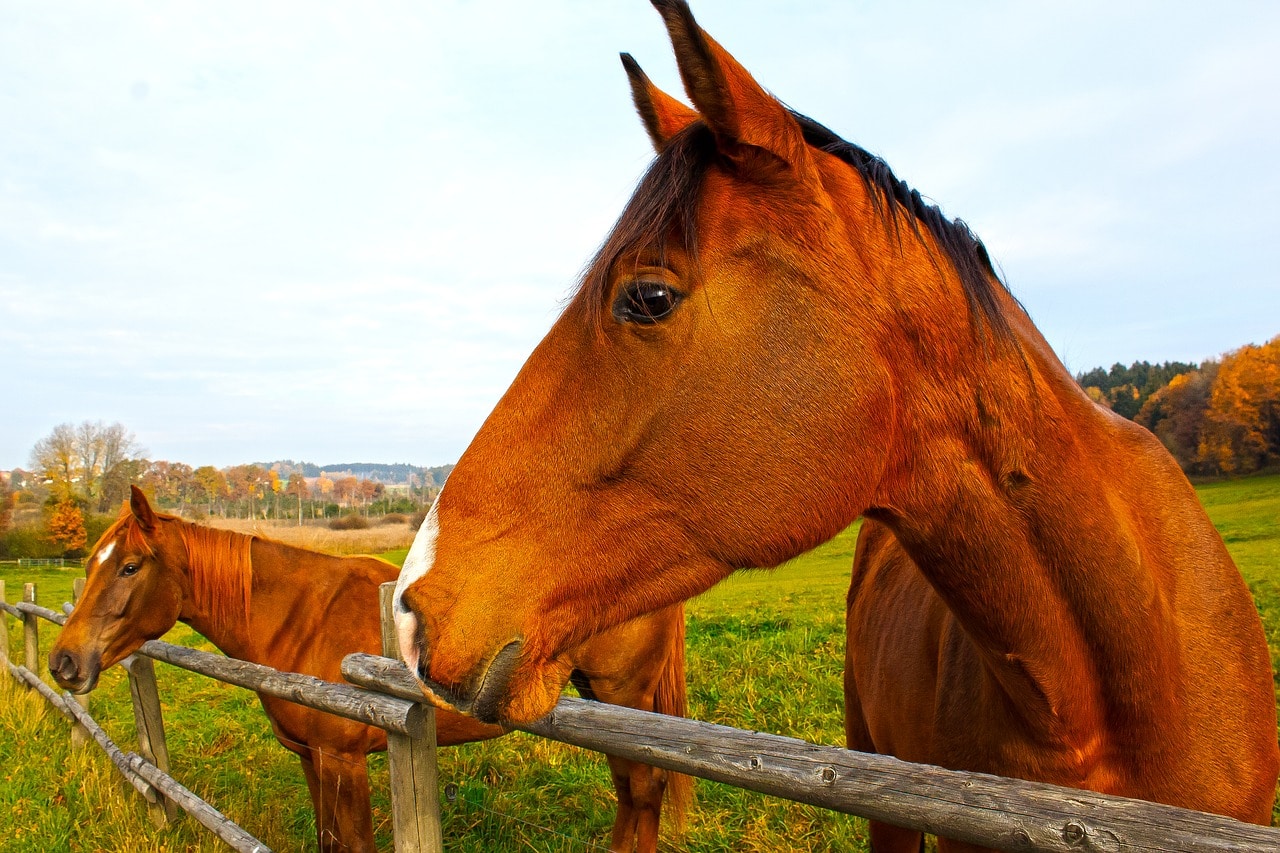
Tried and true, wood fencing has a long track record of making excellent fencing for horses. It’s hard to go wrong with thick wooden boards of oak or something similar. This material is extremely strong, so your fences are sure to hold up if you build them right. Plus, wood is quite visible, and your horse won’t accidentally run into it. Granted, it’s not the cheapest material, and wood prices are always climbing. Wood also wears out due to weather and the chewing of your horses, which means you’ll have to replace boards often and do a good amount of general upkeep and maintenance.
2. PVC Fencing

Unlike wood, PVC fencing won’t wear out with the weather and your horses can’t chew it up. It’s essentially weatherproof, and it can even have the appearance of a wood fence, minus the maintenance and hassle. Of course, you can get PVC in all white and even other colors, allowing for elegant looks with minimal maintenance. But this is one of the most expensive ways of constructing your fence. Also, PVC is designed to break under pressure, and once your horses learn this, they’ll probably walk right through them, which is why most PVC fences are combined with electric fencing.
- You may also be interested in: Hoof Abscess in Horses: Tips for Treatment and Prevention
3. Electric Fencing

Once your horse experiences a shock from the fence, they will learn not to touch it again for fear of receiving another shock. These shocks aren’t dangerous, though; they are uncomfortable but won’t harm your horse, and they are a great deterrent.
The problem with electric fencing is that it’s all one system, so if something damages the system, none of it will work. Also, you’ll need a professional to install electric fencing, unlike wooden or PVC fencing, which you can easily do yourself. In general, electric fencing combines well with other types of fencing.
4. Pipe Fencing

Pipe fencing is a bit industrial in appearance, but it’s incredibly strong and offers top-notch durability. On the downside, it’s so strong that it has no give. If your horse runs into steel pipe fencing, they could sustain serious damage. Fortunately, this fencing tends to be quite visible, so this shouldn’t be much of a problem. However, pipe fencing has a rather costly purchase price, so it’s not the most economical option. It’s also rather difficult to install, which is also why it costs so much, and this may prevent you from doing it yourself.
5. Wire Fencing

Wire fencing is one of the cheapest types of fencing that is adequate for horses. It’s also easy to install, making it even more affordable for most people. Granted, it’s one of the weaker fencing methods, and horses will often lean on wire fencing and cause it to lose shape. Additionally, wire fencing has some of the worst visibility of any fencing on this list, and if your horse runs into it at full speed, it could spell disaster. For these reasons, wire fencing is often combined with PVC or wood fencing to provide more visibility, along with electric fencing to prevent horses from leaning on it.
6. V-Mesh Fencing

V-mesh fencing is a particular type of wire fencing that’s quite safe and effective. Also known as no-climb fencing, V-mesh has small holes that a horse’s hooves can’t get stuck in. It’s also designed to absorb the energy of your horse, so if they run into the V-mesh, they won’t get as injured as if they ran into any other type of fencing. Still, it’s effective at keeping out predators and pests.
As you might expect, this type of fencing is rather costly, though it’s only about the same price as wood fencing. Considering the fact that it’s one of the safest fencing materials for horses, V-mesh is a favorite option.
Fencing You Should Never Use for Horses
Barbed Wire
Barbed wire might be effective at keeping out unwanted guests, but it’s a terrible idea to use it for keeping your horses in. A horse can easily get hurt by barbed wire, even just by leaning on it. Should your horse run into barbed wire at full speed, it could cause severe harm.
Square Mesh With Large Openings
While some mesh fencing, such as V-mesh, is great for horses, fencing with large openings is not. If the openings are larger than 3 inches, your horse’s hooves could get caught in the openings, causing damage to the horse and the fence. Make sure any mesh fencing that you use has holes that are smaller than 3 inches.
Combining Fencing Types
While most of these fencing types are effective on their own, maximum effectiveness is often achieved by combining more than one type. For instance, PVC fencing is attractive and holds up well against weather, but it’s breakable. When combined with electric fencing, you can prevent horses from breaking it, and you’ll only need a single strand of electric fencing, keeping the costs lower. These fencing types can be combined in myriad ways, so think about what each fencing offers and how different kinds of fencing can complement each other.
Final Thoughts
The fencing that will be best for your horse will depend on you, your horse’s set-up, and your horse. All six types of fencing discussed in this article are great options, and you won’t be disappointed with any of them, though many could be improved by simply combining them. Don’t forget to factor in things like your own budget, space, and tastes to determine which kind of fencing will be suitable for your space and horses. V-mesh offers one of the safest types of fencing for horses, but each type of fencing listed has a time and place where it’s ideal.
See also: How Much Does Horse Fencing Cost? The Surprising Answer!
Featured Image Credit: Pixabay





